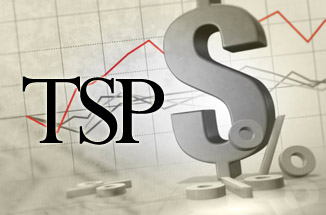The Treasury Department will have to take extraordinary measures, including borrowing from the Thrift Savings Plan’s G fund, for the next few months in order to keep the federal government from defaulting on its debts.
As the federal government comes close to reaching its current borrowing limit of nearly $20.5 trillion, the Federal Retirement Thrift Investment Board, which manages the TSP, announced on Dec. 13 that the Treasury Department would temporarily suspend investments into the TSP until Congress votes to extend the government’s debt limit.
“As of today, December 13, 2017, the U.S. Treasury was unable to fully invest the Government Securities Investment (G) Fund due to the statutory ceiling on the federal debt,” the Federal Retirement Thrift Investment Board posted online. “However, G Fund investors remain fully protected and G Fund earnings are fully guaranteed by the federal government. This statutory guarantee has effectively protected G Fund investors many times over the past 25 years. G Fund account balances will continue to accrue earnings and will be updated each business day, and loans and withdrawals will be unaffected.”
Even though the federal government maxed out its “debt ceiling” limit to borrow new funds on or around Dec. 9, according to Congressional Budget Office estimates, the Treasury Department can continue to borrow through these extraordinary measures until it runs out of cash in March or April 2018. Congress is expected to vote on extending the debt ceiling around that time.
In November, the CBO released a report outlining some of the ways the government could continue to pay back its debts once it reached the debt limit. Among the short-term solutions it came up with was the proposal to suspend investment in the TSP’s G fund — the low-risk, low-reward retirement fund for current and former federal employees.
“To avoid breaching the limit, the Treasury would then begin to take the extraordinary measures that allow it to continue to borrow additional amounts for a limited time,” the CBO report said. “Continued use of those measures, along with regular cash inflows over the next few months, should allow the Treasury to finance the government’s activities for that period without an increase in the debt ceiling.”
The G fund, which holds more than $222 billion, would be one of the largest pots of money the Treasury Department could borrow from. In addition, the CBO suggested that Treasury could also suspend its payments to the Civil Service Retirement and Disability Fund (CSRDF) and Postal Service Retiree Health Benefits Fund (PSRHBF).
By law, all three of these funds would eventually be paid back, with interest, after Congress raises the debt limit. The Treasury Department has borrowed from these retirement funds in other instances where the federal government has neared its debt ceiling.
A spokesperson for the Federal Retirement Thrift Investment Board said federal employees and retirees will be unaffected by any temporary borrowing measures.
“As always, we want to remind our participants that the G fund will be made whole once the debt ceiling issue is resolved and that participants will not lose a penny, thanks to the statutory protections afforded to the TSP,” she said.
Meanwhile, Congress has until midnight on Dec. 22 to avoid a government shutdown, and must pass either another short-term continuing resolution, or pass an omnibus spending bill. President Donald Trump on Tuesday signed the national defense spending bill, a major part of a more comprehensive spending plan for fiscal 2018.
Copyright
© 2024 Federal News Network. All rights reserved. This website is not intended for users located within the European Economic Area.
